Erectile Dysfunction (ED) is a prevalent medical condition and a common male sexual dysfunction, affecting millions of men worldwide. This condition, also loosely referred to as impotence, is characterised by the inability to achieve or maintain an erection sufficient for satisfactory sexual performance. While occasional difficulties with erections are common and often nothing to worry about, persistent issues suggest underlying health concerns that require treatment for weak erection and erectile dysfunction help.
In this blog, we will delve into the mechanics of erectile function, factors contributing to ED dysfunction, its symptoms, diagnostic methods, and the various ED remedies, treatments, and therapies available. First of all, it is important to recognise that erectile dysfunction is not merely a standalone issue, but often a sign of more complex health conditions. Studies indicate that up to 70% of men with erectile dysfunction also have cardiovascular diseases or diabetes, emphasising the importance of understanding male erectile disorder. This awareness is crucial for both affected individuals and their partners, as ED can significantly impact quality of life and intimate relationships.
An erection is not only a sexual response but also a complex physiological event involving neurological, vascular, hormonal, and psychological factors. When a man becomes aroused, signals from the brain release chemicals that relax the muscles in the penis, allowing blood to flow into the erectile tissue and creating rigidity. In individuals with ED, this process is disrupted. Causes can be multifaceted, from physical conditions like cardiovascular disease, diabetes, and hormonal imbalances to psychological factors such as stress, anxiety, or depression. A comprehensive approach to ED cure includes understanding these root causes to guide effective impotence treatment and provide personalised ED therapy.
Our goal is to offer tailored erectile dysfunction treatment options, including remedies and lifestyle changes, to help those experiencing men’s erectile dysfunction. We cover ED solutions and male sexual dysfunction treatment options that address these underlying issues and promote overall wellness, paving the way to a fulfilling intimate life and optimal health.
What causes Erectile Dysfunction?
Erectile Dysfunction (ED) can stem from various underlying factors, both physical and psychological.
Also Read: Premature Ejaculation – Causes, Treatment & Exercises
Physical Factors
- Cardiovascular Diseases: Conditions such as atherosclerosis (narrowing of arteries), hypertension (high blood pressure), and coronary artery disease can impede blood flow to the penis, leading to Erectile Dysfunction. Various researches have established a very strong correlation between ED and heart diseases.
- Diabetes: High blood sugar levels associated with diabetes often damage blood vessels and nerves, contributing to erectile dysfunction.
- Hormonal Imbalances: Imbalances in hormones like testosterone, thyroid hormones, or cortisol also can prevent proper erection thereby affecting sexual function.
- Neurological Disorders: Certain conditions such as Multiple sclerosis, Parkinson’s disease, or spinal cord injuries can disrupt nerve signals necessary for achieving an erection.
- Medications: A few medications such as antidepressants, antihypertensives, and chemotherapy drugs, may have side effects that can lead to to erectile dysfunction.
- Substance Abuse: Excessive alcohol consumption, smoking or tobacco use, and illicit drug abuse can all negatively impact erectile function.
Psychological Factors
- Stress: High levels of stress, whether related to work, relationships, or other factors, can interfere with sexual arousal and performance.
- Anxiety: Performance anxiety or general anxiety disorders is also equally common and can lead to feelings of inadequacy or fear of failure during sexual activity.
- Depression: Depression is yet another reason that can affect libido, energy levels, and self-esteem. All of these may contribute to erectile dysfunction.
- Relationship Issues: Conflict, communication problems, or lack of intimacy within a relationship also can manifest as ED.
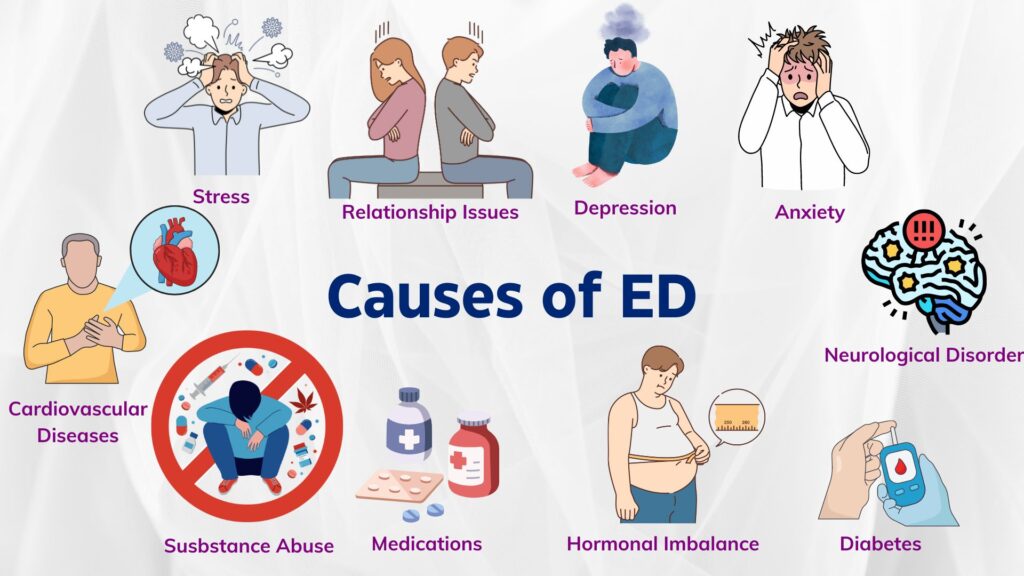
Lifestyle plays a very important role in one’s ability to attain proper erection and maintain it. Lack of regular physical activity can contribute to obesity, cardiovascular problems, and hormonal imbalances, all of which are risk factors for ED. Poor dietary choices high in processed foods, saturated fats, and refined sugars are yet another reason that also cause a host of other lifestyle diseases such as diabetes, and cardiovascular diseases – all of which increase the risk of erectile dysfunction. Chronic alcohol abuse is yet another common reason for ED, as it can impair nerve function and reduce the male sex hormone (testosterone) levels, leading to erectile dysfunction. Smoking is yet another common lifestyle factor that damages blood vessels and reduces blood flow to the penis, increasing the risk of vascular-related ED.
Diagnosis & Treatment of ED
Diagnosing Erectile Dysfunction
Diagnosing erectile dysfunction (ED) at SOLVEMyHealth involves a comprehensive evaluation of male sexual problems, including a detailed assessment of sexual dysfunction and erection problems. This process typically begins with gathering the individual’s medical history, where existing health conditions, medications, surgeries, and lifestyle factors are discussed. Our expert panel may suggest blood tests to measure hormone levels and check for underlying medical conditions like diabetes or high cholesterol, key factors in ED. Tests such as lipid profile, HbA1c, testosterone levels, and prolactin may be recommended as part of the ED treatment approach.
Additionally, assessing overall health, particularly heart health, is crucial, as erectile dysfunction is often linked to other lifestyle diseases. We understand that ED can be complex, so psychological evaluations are sometimes necessary to identify any contributing factors like stress, anxiety, or depression. In advanced cases, imaging tests such as ultrasound may also be required to evaluate blood flow to the penis, which is essential for diagnosing specific erectile dysfunction problems.
At SOLVEMyHealth, we provide ED treatment options and solutions tailored to each individual’s needs. From natural remedies to ED meds and other forms of ED help, our goal is to offer effective erectile dysfunction solutions. Through a thorough evaluation, we aim to provide personalized ED solutions that enhance the quality of life and restore confidence for men facing sexual problems.
Also Read: How does erection occur?
Medical Treatment for Erectile Dysfunction (ED)
Treatment for Erectile Dysfunction (ED) aims to address underlying causes to improve erectile function and enhance overall sexual health. Depending on the underlying factors contributing to ED and individual preferences, the treatment modalities may vary. For men with low testosterone levels contributing to ED, testosterone replacement therapy may be recommended to restore hormone levels and improve erectile function. Phosphodiesterase type 5 (PDE5) inhibitors class of drugs such as sildenafil (Viagra), tadalafil, and vardenafil may be recommended by our doctors to help increase blood flow to the penis, facilitating erections when sexually aroused.
Certain non-invasive devices such as ‘Vacuum Erection Devices‘ (VEDs) that use a vacuum to draw blood into the penis, resulting in an erection is yet another management method for ED. These devices can be used as a standalone treatment or in combination with other therapies to achieve and maintain erections.
For individuals with severe or refractory ED who do not respond to other treatments, surgical placement of a penile implant may be considered. Penile implants are prosthetic devices inserted into the penis to facilitate erections when desired. In some cases, surgical procedures may be required to correct underlying anatomical issues contributing to ED, such as penile artery revascularization or venous ligation surgery.
Lifestyle Management for Erectile Dysfunction (ED)
Making lifestyle modifications can significantly improve erectile function and overall health, serving as an effective ED problem treatment for those experiencing male sexual dysfunction. Key steps include regular exercise, a healthy diet, quitting smoking, proper sleep, and limiting alcohol intake. Physical activities like brisk walking, jogging, cycling, or weight training can improve blood flow and cardiovascular health, which are essential for managing male erection problems and providing solutions to ED issues.
Adopting a diet rich in fruits, vegetables, whole grains, and lean proteins, while limiting processed foods, saturated fats, and sugars, not only supports overall health but also addresses some of the causes of erectile dysfunction by enhancing circulation and reducing inflammation. For many, these dietary changes can provide a solid foundation in combating sexual problems in men, including ED.
Quitting smoking is particularly important, as it improves blood flow and reduces the risk of vascular-related erectile dysfunction. Moderating alcohol intake is another lifestyle change that can help prevent ED, especially alcohol-induced impotence. For those experiencing ED problems due to psychological factors like stress, anxiety, or relationship issues, psychological counseling or therapy can provide significant erectile dysfunction help. Counseling can address underlying emotional issues, improve communication skills, and reduce performance anxiety, offering effective ED cure options without solely relying on medication.
For those looking for ED remedies, impotence treatment, or cures for erectile dysfunction, incorporating these lifestyle modifications alongside medical guidance can make a lasting impact. Whether dealing with erectile dysfunction related to physical health, lifestyle, or psychological factors, these strategies offer a holistic approach to ED therapy, helping individuals regain confidence and improve overall well-being.
Erectile Dysfunction & Cardiovascular Disease (CVD) – A Strong Connection
The association between Erectile Dysfunction (ED) and Cardiovascular Disease (CVD) is very strong and multifaceted, rooted in shared pathophysiological mechanisms and common risk factors. Both conditions are characterized by Endothelial Dysfunction. The endothelium is a thin layer of cells that lines the interior surface of blood vessels. They play a crucial role in regulating vascular tone, blood flow, and immune response, as well as maintaining vascular integrity and preventing clot formation. The endothelium can get damaged due to chronic inflammation that stems out of poor lifestyle, diabetes, smoking etc. Such an endothelial dysfunction reduces the nitric oxide (NO) bioavailability and endothelial nitric oxide synthase (eNOS) activity. This leads to impaired vasodilation, inflammation, and oxidative stress.
Endothelial dysfunction, driven by risk factors such as hypertension, dyslipidemia, diabetes mellitus, obesity, smoking, and a sedentary lifestyle, also leads to the development of atherosclerosis and other microvascular diseases. This leads to compromised arterial blood flow and tissue perfusion in both penile arteries (penis) and the coronary vessels (heart).
Moreover, ED often precedes symptomatic CVD, serving as an early clinical marker of subclinical vascular disease. Individuals with ED have an increased risk of cardiovascular events, including myocardial infarction (heart attack), stroke, and cardiovascular mortality. Therefore, comprehensive cardiovascular risk assessment is important for those who present with symptoms of ED.
Also Read: Delayed Ejaculation – Causes & Treatment
Equally important is implementing preventive strategies such as lifestyle modifications to reduce the risk of cardiovascular diseases alongside pharmacotherapy. This may concurrently improve erectile function and also reduce the risk of cardiovascular events. The interconnected nature of ED and CVD makes it imperative that the approach to managing and treating the ED needs to follow a holistic and integrated approach.
How can we help you in managing ED?
At SOLVEMyHealth, managing Erectile Dysfunction (ED) involves a comprehensive and integrated approach that addresses underlying causes and promotes overall health and well-being. Upon online consultation with our andrologist or urologist, individuals undergo a thorough evaluation to identify contributing factors to their ED. Medical management options, including prescription medications, may be considered based on individual needs and medical history. Alongside medication, SOLVEMyHealth emphasizes lifestyle modifications, such as a balanced diet and exercise plan tailored to cardiovascular health and weight management.
As part of our holistic approach, we also recommend SOLVE VitalBoost for Men—a supplement crafted to support sexual health by enhancing vitality, energy levels, and circulation. VitalBoost is designed to work synergistically with lifestyle improvements, supporting cardiovascular health and physical stamina.
In addition to supplement support, SOLVEMyHealth offers lifestyle programs focused on improving overall health, including targeted exercises that strengthen the muscles around the lower part of the pelvic floor. Strengthening these muscles can improve blood flow, control, and stability, which are essential for optimal erectile function. SOLVEMyHealth provides guidance, resources, and ongoing monitoring to help individuals maintain these changes effectively. By integrating medical management, VitalBoost, and personalized lifestyle support, SOLVEMyHealth aims to optimize erectile function, enhance muscle health, and improve quality of life for individuals dealing with ED.
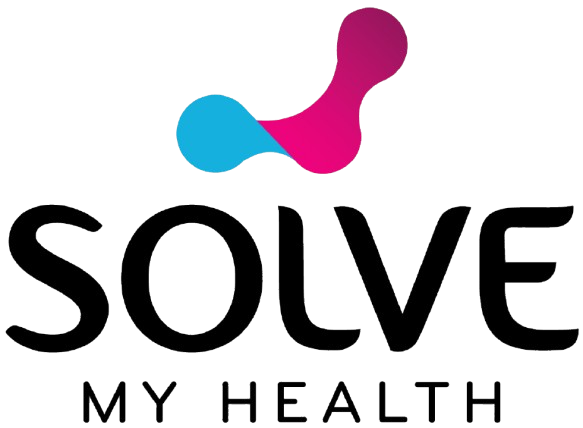

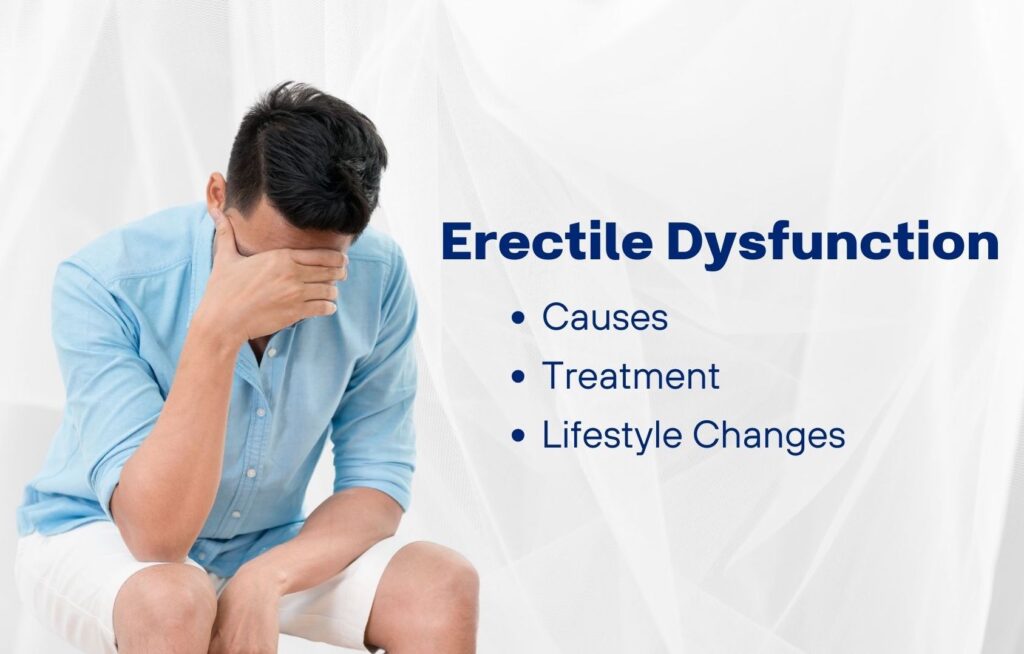
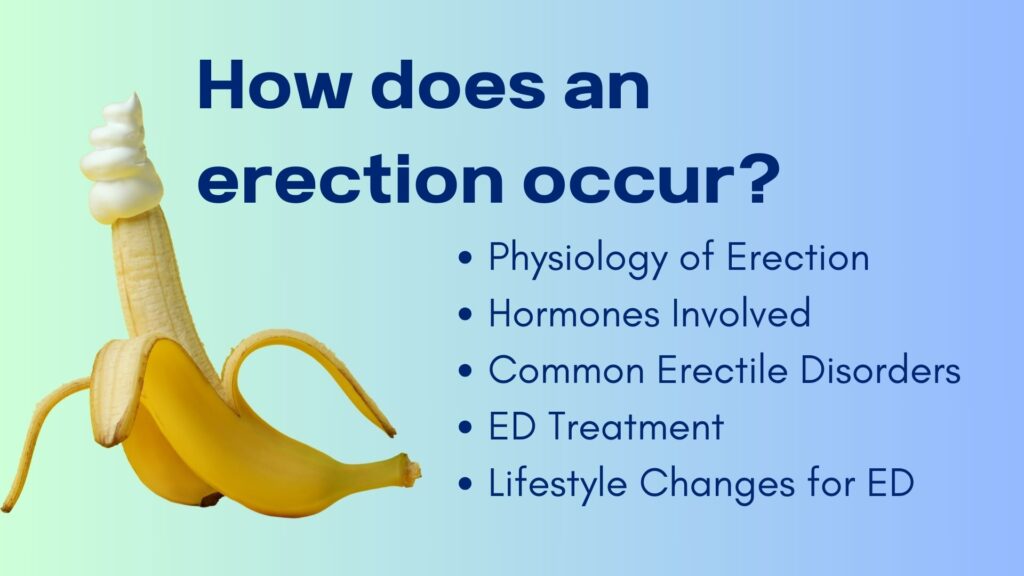


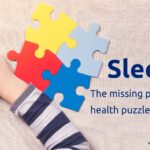
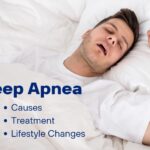



2 comments
Very nice article. Very scientific and helpful
Amazing! You explain things in such a clear and concise way.